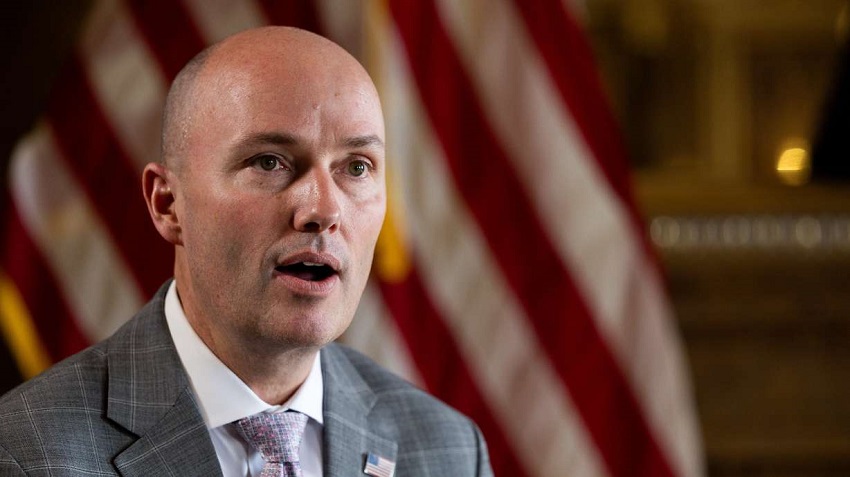Ogden, UT – In the weeks following Donald Trump’s election as president, Utah Governor Spencer Cox unveiled a plan to support federal deportation efforts using state resources. His stated priority was to target undocumented immigrants who had committed crimes while residing in Utah. The announcement, made approximately 20 days after Trump’s victory, quickly drew both support and criticism across the state.
During a news conference broadcast on PBS Utah, Cox emphasized that the state’s deportation efforts would focus on individuals who have broken the law. “We’re going to start with criminals, people who are breaking the law and causing harm to Americans,” Cox said. “Let’s get the worst element out. Let’s focus there.” He further clarified that deportations would involve individuals convicted of crimes, whether violent or nonviolent. “If you commit crimes, yes, yeah, if you commit crimes, I don’t care if they’re violent or nonviolent. Yes. You should not be here,” Cox added.
The governor’s remarks raised concerns among immigrant advocacy groups in Utah, who argued that such policies could unfairly target and marginalize the broader immigrant community. Comunidades Unidas, a prominent immigrant rights organization, called the proposal harmful, stating that it threatened to “dehumanize” many who are part of Utah’s workforce and culture.
Utah’s Democratic leadership also voiced strong opposition to Cox’s stance. Senate Minority Leader Luz Escamilla and House Minority Leader Angela Romero, both representing Salt Lake City, issued a joint statement condemning the governor’s plan. “While we all want to hold criminals accountable and ensure public safety, this approach risks creating fear and misrepresenting undocumented individuals, many of whom contribute significantly to Utah’s economy, culture, and workforce,” they said. They also emphasized the need to distinguish between those who commit crimes and those seeking a better life for their families.
Cox, however, remained firm in his position, asserting that his focus was not on those who crossed the border illegally but rather on those who were involved in criminal activity. He pointed to the fact that more than 200 migrants in Utah were incarcerated for various crimes, which, according to Cox, represented 4.6% of the state’s prison population. The governor noted that this group of immigrants cost the state nearly $16 million annually in prison expenses.
The Utah Department of Public Safety was expected to oversee the deportation plan, with potential assistance from the state’s National Guard. However, Cox admitted that the specifics of how the plan would unfold were still unclear, particularly in light of the incoming Trump administration’s broader immigration policies.
Despite expressing support for Trump’s tough stance on immigration, Cox also acknowledged the challenges of implementing large-scale deportations. He questioned the logistical feasibility of mass deportations, particularly after the Trump administration’s efforts to remove millions of undocumented immigrants. “They can’t even take 100 criminals, serious criminals, in this state and deport them,” Cox said, criticizing the ineffectiveness of U.S. Immigration and Customs Enforcement (ICE) under the Biden administration.
While Cox’s position on deportation has stirred controversy, he has been consistent in his stance on legal immigration. He voiced support for reforms to streamline legal immigration, pointing out that this issue is not just a concern for conservatives but is gaining traction across the political spectrum. “I want to be very clear about this. We care about those who have come here legally. It’s really important that we fix legal immigration,” he said.
Cox also sought to emphasize that his views were not anti-immigrant, pointing out that the issue was not limited to Latino communities. He mentioned concerns about “dangerous elements” from regions such as the Middle East and China entering the country, framing his position as one rooted in law and order. “This isn’t just about the Latino community. It is about law and order,” he said.
While Governor Cox continues to defend his position, the debate over his proposed deportation plans is expected to remain a contentious issue in Utah, with immigrant advocates and Democratic lawmakers likely to continue challenging the state’s approach. As the state navigates this complex issue, it remains unclear how the governor’s plans will evolve in light of federal changes under the incoming Trump administration.

